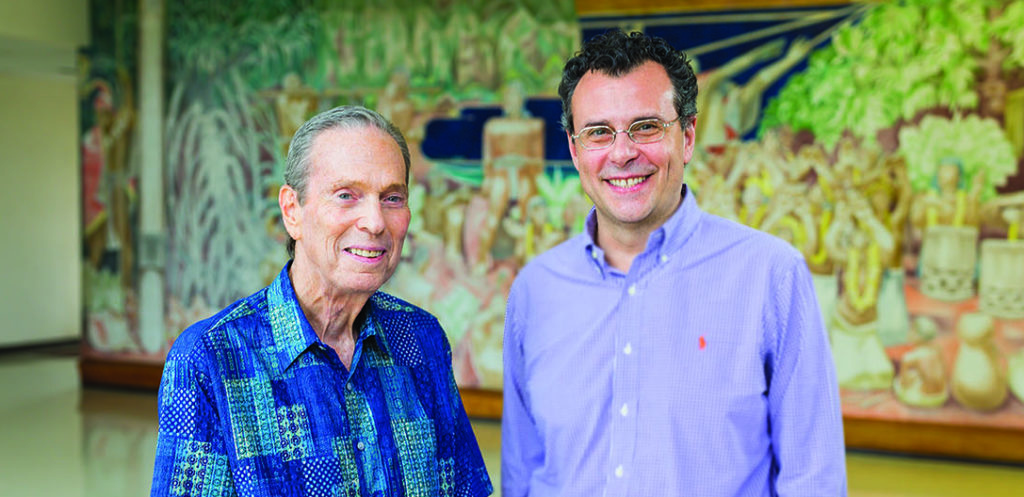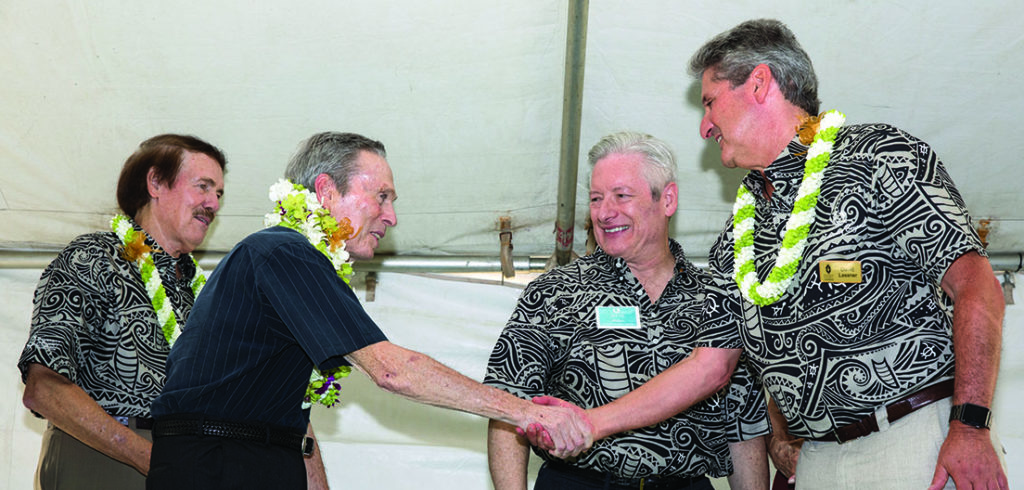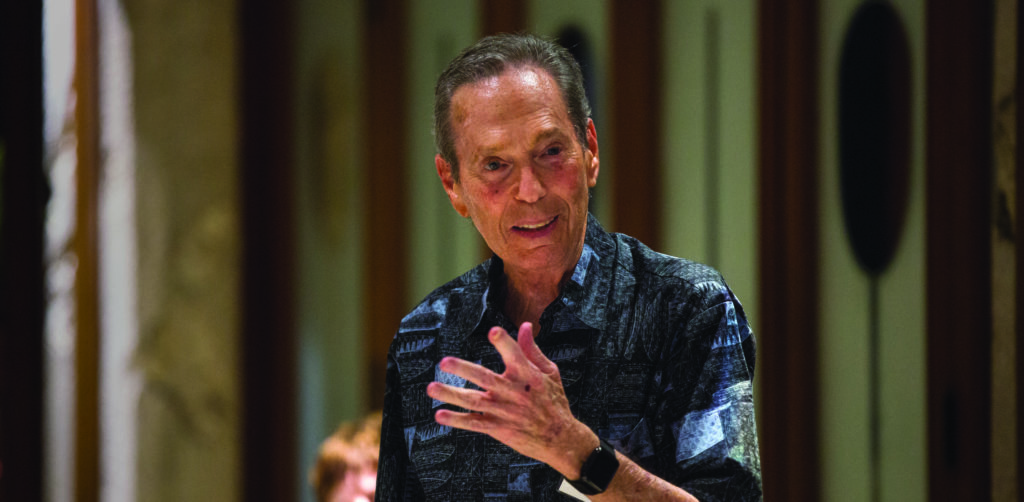UH’s Innovation and Commercialization Architect
Since the decline of agriculture in Hawai‘i, the economy has become increasingly dependent on the tourism sector and on military spending. However, this dependency has left Hawai‘i vulnerable to uncertain fluctuations in world events and at the mercy of equally uncertain military policy and budget decisions emerging from Washington, D.C.—mirroring a similar situation San Diego faced in the 1960s. However, by bringing together the private sector, government and academia, and by leveraging UC San Diego research in the 1980s, the city was able to create a thriving tech-based economy that has produced a gross domestic product that currently hovers around $221 billion—of which about 25 percent is attributed to its research and technology industries. Comparatively, Hawai‘i’s related industries account for only about three percent of the economy.
So when the University of Hawai‘i (UH) began to engage in efforts to bring about a similar change to the islands, venture capitalist Barry Weinman was one of a number of distinguished experts assembled to craft an innovation roadmap—with a goal to help diversify the state’s economy by building a thriving $1 billion innovation, research, education and training enterprise by 2025. The effort became known as the Hawai‘i Innovation Initiative.
For those familiar with UH, Barry Weinman’s name is mostly synonymous with philanthropy and an unmatched generosity of giving his time to help the university to reach its full potential. Over the years, Weinman and his wife Virginia have donated millions of dollars to UH through various fellowships, endowed chairs and funds to benefit UH Mānoa programs at the John A. Burns School of Medicine, UH Cancer Center, Shidler College of Business and UH athletics.
However, his greatest legacy to UH may have gone relatively unnoticed except to the most astute university supporter or those closely associated with UH research—for his role as an early champion of using UH intellectual property and technology to spur innovation to benefit Hawai‘i by advancing the quality of life, healthcare, economic prosperity and other significant areas.
Weinman knew a thing or two about the subject since he had been making venture capital investments in the Silicon Valley area since the 1980s and was a co-founder and managing director of Allegis Capital, a $700 million venture capital firm specializing in incubation, growth capital and early stage startup investment. As a part-time Hawai‘i resident, Weinman also shared the same concerns about the state’s current economy.
“Barry is a true visionary and was onboard early to support the establishment of an innovation-based ecosystem in Hawai‘i driven by UH intellectual property and technology,” said UH President David Lassner. “For over a decade now, he remains the biggest proponent of our faculty researchers and their IP.”
Much of Weinman’s suggestions became the blueprint for the initiative. Under the leadership of UH Vice President for Research and Innovation Vassilis L. Syrmos, the university has been steadily implementing the necessary changes, including the hiring of researchers with an acumen for innovation and entrepreneurship, revising and updating of outdated patent, copyright and IP policies, redefining the mission of the university’s commercialization offices and the completion of an office reorganization to better support faculty inventors and streamline commercialization efforts throughout UH’s ten campus system.

Through his Silicon Valley investing experience and as managing director of the UH Foundation’s Upside Fund I and II, a small seed venture capital fund that invests in UH research with commercial potential, Weinman also encouraged UH to create an accelerator, an entity that provides advice and resources to aspiring businesses, specifically designed for its faculty, student and alumni to bring their innovative research successfully to market.
Heeding to his advice, in September 2015, UH launched XLR8UH, a four-month startup program that works with UH-affiliated entrepreneurial teams to offer office hours, weekly workshops, presentations and lectures conducted by noted business, technology and startup experts, with up to a $175,000 investment from UH for eligible teams. Since that time, XLR8UH with Weinman as board member, has mentored, educated, and inspired more than 40 startup ventures with 24 matriculating out of the program—generating, in total more than $5 million in revenue, and raising more than $30 million in funding.
“As a strong proponent of UH research, Barry was familiar with the university’s existing strengths in astronomy, healthcare, ocean science and energy,” said XLR8UH Managing Director Omar Sultan. “He was confident that UH could take advantage of these distinctive strengths to create innovative solutions that could yield significant commercial value in the marketplace.”

One of XLR8UH’s most successful graduates is KenetiCor and its MRI motion correction technology developed by Professor Thomas Ernst formerly of UH Mānoa’s John A. Burns School of Medicine and his colleagues from other research institutions. So impressed by KinetiCor game-changing potential in the medical field, Weinman now serves as the company’s chairman.
In what might be considered his most valuable contribution to UH innovation, Weinman was the first to recognize that existing statutes covering UH’s tech transfer and commercialization activities needed to be removed before the Hawai‘i Innovation Initiative could truly be successful. After three years of determined effort by UH and the Hawai‘i business and innovation community, the Hawai‘i State Legislature finally passed two legislative measures to eliminate these restrictions, which was signed into law by Governor David Ige on June 19, 2017. “In more ways than one, these two innovation bills could be considered as Barry Weinman’s bills,” said Syrmos. “We are fortunate to have been a benefactor of his sage advice and we can attribute much of the current and future success of the commercialization of UH research and the Hawai‘i Innovation Initiative to him.”

